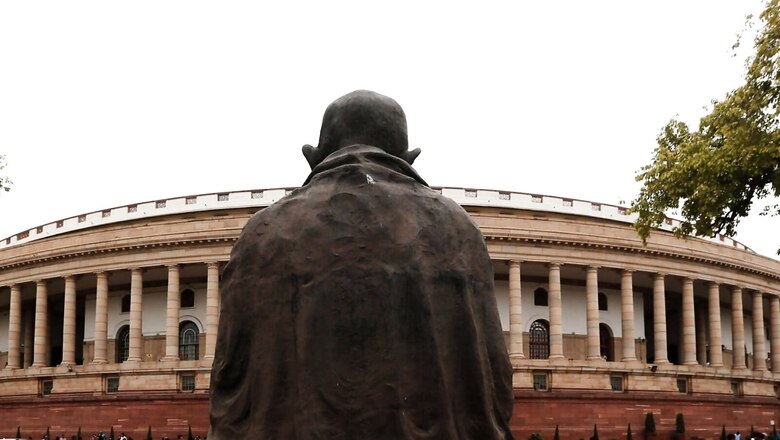
views
The year is 2022. As India is gearing towards taking the global centre stage as an economic powerhouse to be reckoned with, one of the fastest growing economies, a progressive country which has left behind its shackles from the colonial era 75 years ago, we are faced with the dichotomy of misogynistic and regressive laws which still run and ruin the lives of many in this great country. The Muslim Personal Law is one such set of laws.
The Shariat Act of 1937 by the British Raj brought into force what is today known as the Muslim Personal Law. This law deals with matters of marriage, divorce, inheritance, succession and maintenance for Muslims. There are several aspects of this law which are troublesome and at odds with the constitutional values of India.
At the time of Independence itself, a regressive law like the Muslim Personal Law could have and should have been abolished, when a new legal framework was being created for Indians, by Indians. But keeping in mind the volatile situation in the country during the Partition, this did not happen. Nevertheless, a clear provision was made in the Constitution under Article 44, which calls for the implementation of a Uniform Civil Code. Why it was not implemented all this time, even after 75 years of Independence, is something the state needs to address.
The Muslim Personal Law legalises regressive and misogynistic practices like polygamy which are outlawed even in many Islamic countries. A list of countries where polygamy is still practiced (legally) is made up of Islamic countries, largely some developing economies which are straddling along the growth path at a very slow pace. Why India should figure in this list, while it aims to be among the most powerful countries in the world, is a question to which no head of Indian state has given a clear answer.
By allowing the Muslim Personal Law to continue, the legal system is demonstrating itself to be selectively secular. If there are special laws for one community, that too laws which impinge on the rights of women, there would be demands for laws for every other community too. India is home to people from hundreds of sampradayas, religions and belief systems. But all citizens are supposed to be equal in front of the law —the famous epithet of “andha kanoon” applies here. The lawmakers and law enforcement cannot be placed in a position where they interpret religion for the masses — which varies greatly even within the same religion — and enforce laws which place certain historically disadvantaged groups at an even greater disadvantage. By abolishing the Muslim Personal Law and implementing the Uniform Civil Code, the state has an opportunity to set right a historical wrong.
The role of law is to protect the rights of citizens, not to limit them or impinge upon them. When the law itself is used to justify and commit crimes, it is called “lawfare”. When the law becomes an instrument of injustice, it loses its purpose in the society. The Muslim Personal Law is one such law. It places India a hundred years behind. The law enables Muslim men to marry more than one woman without any recourse or justice for the women who are trapped in a marriage where they are merely an object. It discriminates against Muslim women and limits their rights to ask for justice, purely on their religious identity. This type of lawfare has no place in a progressive country like India.
Though there has been much brouhaha about the Uniform Civil Code and abolishment of the Muslim Personal Law, the fact remains that those Muslims who are already progressive and not misusing this law to limit the rights of women will not have a problem with the abolishment of the law. The rabble rousers are typically those who are already misusing this law, or plan to misuse this law to mistreat women. At a time when the world is moving towards greater gender equality in every sphere of society, law should not just be allowing a space for gender equality but leading the movement. The ire of misogynistic men cannot be used as a justification for the existence of this law. The time is now ripe to do away with patriarchy and bring about greater inclusiveness in society, to truly claim India’s spot as a progressive and ascending economy of the world.
Arti Agarwal is an author and researcher on understanding secularism in India. The views expressed in this article are those of the author and do not represent the stand of this publication.
Read all the Latest Opinions here


















Comments
0 comment